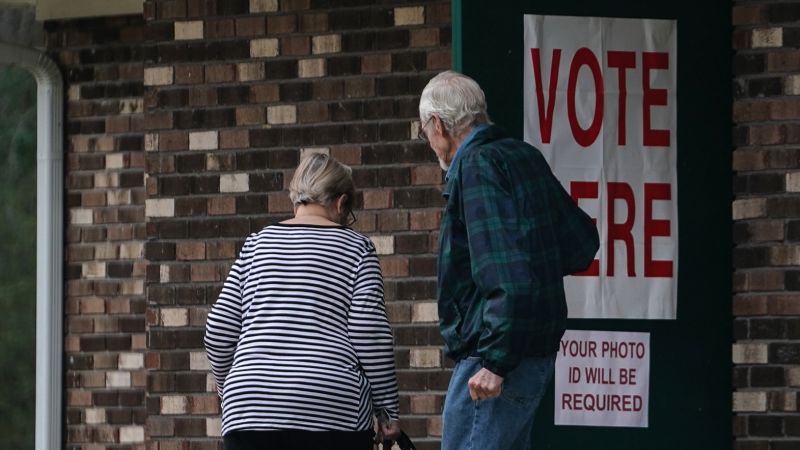The Brennan Center for Justice at New York University’s law school released a report stating that more than half of the states in the US have enacted laws since 2020 that make it harder to vote. These laws range from voter registration restrictions to strict voter ID requirements and relate to multiple stages of the voting process. The report highlights that this trend of restrictive voting laws has intensified in the aftermath of the 2020 election.
One type of restrictive voting law targets mail-in voting, which was heavily criticized by former President Donald Trump and his allies as being susceptible to fraud. States like Alabama and Idaho have passed laws imposing criminal penalties for assisting with absentee voting, with Alabama making it a crime in most cases to return an absentee ballot application on behalf of another voter. Critics argue that these laws are meant to suppress certain voters and have filed lawsuits to block them.
In North Carolina, a battleground state, a new law mandates that mail-in ballots must be received by 7:30 p.m. on Election Day to be counted, eliminating the previous three-day grace period for ballot arrival. Before this law, over 8,600 absentee ballots were accepted within the grace period during the 2022 midterms. Additionally, there is a surge of bills seeking to regulate deepfakes and artificial intelligence content in elections, with legislation introduced in at least 39 states to address this issue.
On the positive side, some states have expanded access to the ballot. At least 11 states have enacted laws making it easier to vote, such as Kentucky allowing mail ballots to be sent to addresses other than those on file at election offices, facilitating absentee voting for college students away at school. Nebraska has also restored voting rights for ex-felons who have completed their sentences, eliminating the previous two-year waiting period. This divide between states making it harder or easier to vote underscores the importance of voters familiarizing themselves with their state’s voting rules.
Overall, the push for restrictive voting laws in many states reflects a concerning trend towards limiting voting access. Opponents of these laws argue that they discriminate against certain groups of voters and are a means of suppressing turnout. On the other hand, efforts to expand voting rights in some states are seen as positive steps towards ensuring a more inclusive and accessible electoral process. As the landscape of election laws continues to evolve, it becomes essential for voters to educate themselves on their rights and the voting rules in their state to ensure their voices are heard in upcoming elections.













